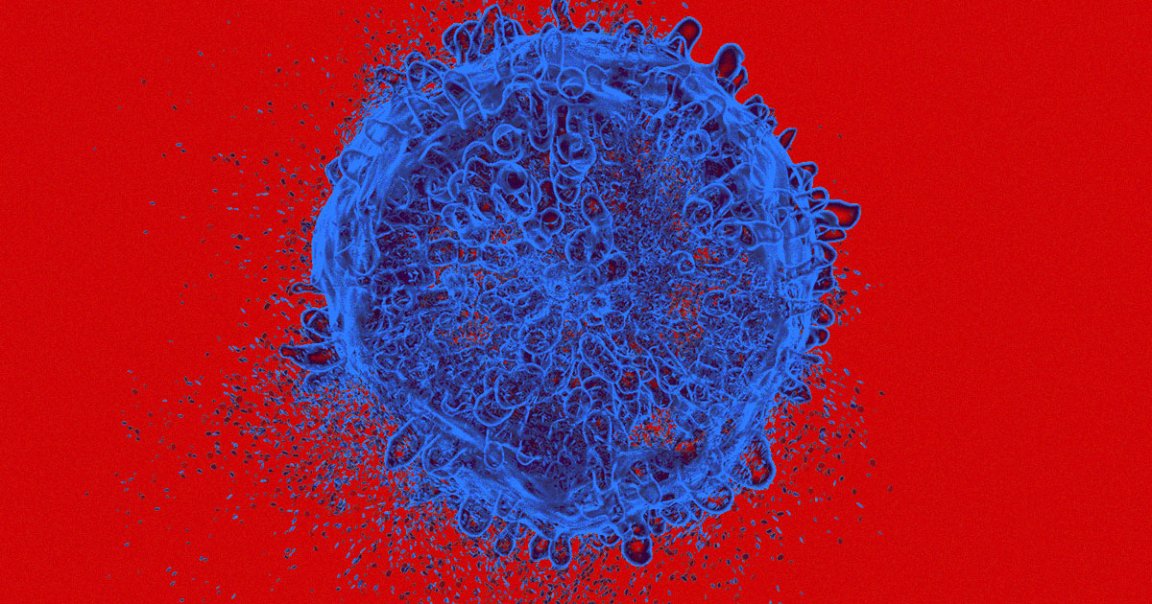
Researchers have discovered a mechanism that forces cancer cells to self-destruct, hijacking their ability to replicate uncontrollably and turning it against themselves.
The research team from Stanford University and gene therapy company Shenandoah Therapeutics published a paper last week in the journal Nature, describing how cancer cells can be rewired to “activate cell death,” not unlike flipping a switch.
While we’re still a long way from developing a drug for humans that takes advantage of this gene hack — assuming it’s actually possible in a practical way — scientists are nonetheless intrigued by the prospect.
“It’s very cool,” Jason Gestwicki, professor of pharmaceutical chemistry at the University of California, San Francisco, who was not involved in the study, told the New York Times. “It turns something the cancer cell needs to stay alive into something that kills it, like changing your vitamin into a poison.”
In a number of lab experiments, researchers built molecules that attach two proteins to each other: a mutated protein called BCL6 that allows cancer cells to survive and grow, and a normal protein that acts like a switch for genes near it.
The resulting construct pushes cancer cells towards genes that kill them, a natural part of the DNA that clears old cells that have already fulfilled their duty.
In cancer patients, these cell death genes are turned off by a protein known as BCL6. This new construct, however, leads the regular protein switch towards these cell death genes, effectively rewiring the cancer cells to kill themselves off.
“BCL6 is the organizing principle of these cancer cells,” Louis Staudt, director of the Center for Cancer Genomics at the National Cancer Institute, told the NYT. Once disrupted, “the cell has lost its identity and says, ‘something very wrong is happening here. I’d better die.'”
The idea could be effective for half of all known cancers, lead author Gerald Crabtree, founder of Shenandoah Therapeutics, told the newspaper. Since it relies on mutated cancer cells, it could also be a highly targeted approach, potentially sparing healthy cells.
So far, Crabtree and his colleagues have demonstrated that the hybrid molecule is safe to use in mice, but was careful to note that it’s “not a drug — it still has a long way to go.”
More on cancer: The WHO Is About to Declare Aspartame a Possible Carcinogen